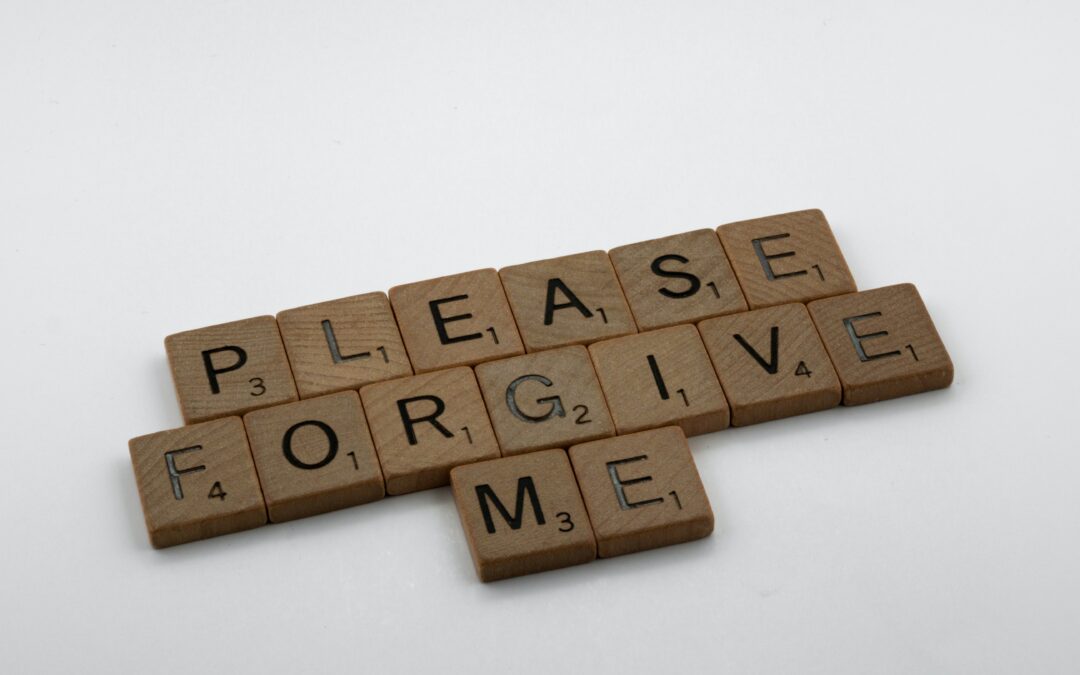Mindset into Momentum
The old saying that you should “forgive and forget” is probably one of the most damaging statements that have been made in terms of how it has affected a person’s ability to forgive. The main reason is that forgetting is not part of forgiving. Forgiving is done despite the wrong-doing, the results from it, and the memory that remains. So, how can you forgive without forgetting?
Forgiveness is About You Not Them
This is probably the hardest concept to understand. Many people wrongly think that forgiving means to let someone off the hook. This is not true. Forgiveness is something you do so that you can stop thinking about the situation and move past it after learning whatever you can. It’s about getting to a point where you can live a happy, successful life without being taken down by your feelings for the person (or even the universe) that has wronged you.
Let Go of the Past and Focus on the Future
To forgive, one of the things you must do, is let go of the past and focus on the future. You do that by learning what you can from each experience, but not placing judgment on the choices made back then. You can only focus on how the situation now impacts the choices you are going to make in the future.
Accept Your Feelings Related to the Wrong
When you forgive something, it doesn’t mean that your feelings are wiped out. Your feelings will remain. It’s how you experience them that will change slightly. For example, if your spouse cheated on you and you got a divorce, the hurt and harm from that are never going away. But you can acknowledge that you feel shattered without acting shattered.
Focus on the Impact of Forgiveness versus Not Forgiving
Take some time to imagine a scenario for both sides of the situation. What happens if you do forgive, versus what happens if you do not forgive? How will each choice impact your life? Don’t think about how your choice impacts the person who wronged you, this is not important, only how it impacts your life negatively or positively is what matters here.
Acknowledge It Happened
Don’t try to hide the fact that the painful thing happened. One thing about forgiveness is that the only way to do it is to be open that something happened, and someone has wronged you. It doesn’t mean you’re a victim. It doesn’t mean you’re stupid. In fact, being wronged has absolutely nothing to do with you but with the person who did it to you. Saying that it happened is no judgment on you at all, only the perpetrator.
Allow Time for the Process of Forgiveness
Forgiveness is not going to happen overnight. Even if you decide to let the person know you forgive them, which you don’t have to do in order to forgive, it will take time for your feelings to really match your actions. You’ll have moments that you remember, and it will hit you like it’s new. You’ll need to develop tactics to help you deal with these feelings and act with forgiveness instead of continuing the old painful behaviours.
Let Go of Expectations You have of Other People or the Universe
While you do want to have big goals in life, it’s best not to place expectations on other people or even the Universe because these are things you have no control over and due to how wonderful our minds are, it’s easy to have expectations which are too high in any given case. You can only control your own behaviour, and that’s it.
Conclusion
To live an intentional life means that you have accepted that you are the manager of your own life. You realise that you cannot control what other people do, and knowing this, you design your life with yourself in control of it. You need to determine where you want to go and put yourself on the path to get there by setting goals and objectives and implementing your plans to realise them. When you accept that forgiveness is not something you are doing for the person who has wronged you, but something you have to do for yourself so that you can move past it and live a good life, it gets a lot easier to do it. It’s important to practice forgiveness, not only of others, but yourself, every single day, because life is short. While you don’t forget the experiences you have, and who would want to, you earned those lessons, you can move forward happily by practicing forgiveness.
Quotes
“We recall our terrible past so that we can deal with it, to forgive where forgiveness is necessary, without forgetting, to ensure that never again will such inhumanity tear us apart, and to move ourselves to eradicate a legacy that lurks dangerously as a threat to our democracy.”
- Nelson Mandela: South African anti-apartheid revolutionary and political leader who served as the first president of South Africa
“Forgive others, not because they deserve forgiveness, but because you deserve peace.”
- Mel Robbins: American lawyer, television host, author, and motivational speaker
Reflections
Can I really forgive if I can’t forget?
Do I focus on the future enough, or am I often re-living the past?
How often do I check-in with my emotions?


Recent Comments